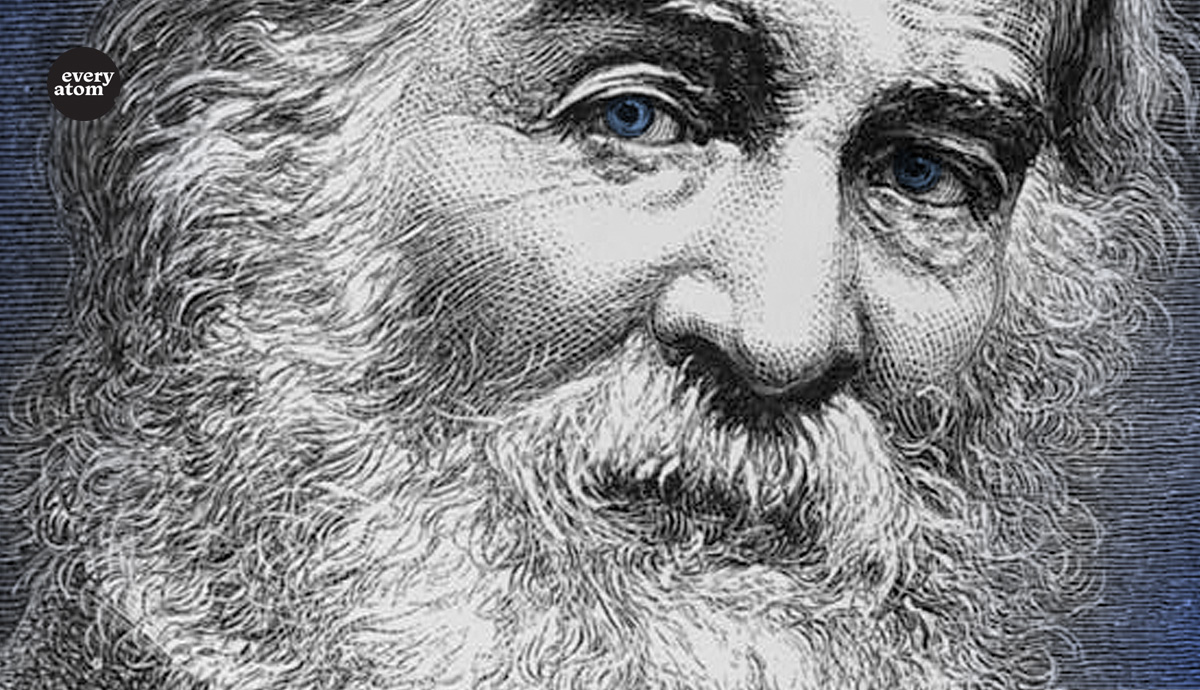Every Atom | No. 129
Introduction to Every Atom by project curator Brian Clements

In conversations with his personal secretary Horace Traubel, who was an avowed socialist, Whitman repeatedly denied any affinity for the socialist cause. This did not stop American socialists of the late 19th century from claiming him as one of their own. The Industrial Workers of the World (known as the I.W.W. or the Wobblies) in particular found in Whitman’s philosophy vibrations sympathetic to their own. Unlike other unions of the time, the I.W.W. was not a craft or a trade union; they accepted all workers, particularly unskilled laborers, into their ranks. Including men, women, and children of any color or ethnicity into their union, the Wobblies accepted and respected all forms of work. Through the many passages in “Song of Myself” which ennoble manual labor, the Wobblies recognized that Whitman shared this same respect for the American worker. The Wobbly core belief in “One Big Union” which would be established through the solidarity of the working class found support in Whitman’s reference to “the knit of identity” in “Song of Myself,” a phrase which refers to his approach throughout the poem of blurring the distinctions between individuals, pulling all people together into a common country, a common experience, a common humanity. Whitman’s terror that the United States (the one big union that he loved so much) would be torn asunder by the Civil War led him to repeatedly champion a one-ness that united the collective American experience. Reading in “Song of Myself” Whitman’s celebration of a diversity of workers knitted together for a single American purpose, socialists could easily extrapolate from his poetry his blessing on the labor union movement, whether he actually gave that blessing or not. Encouraged by founders and supporters of the I.W.W. such as Eugene V. Debs, Emma Goldman, Clarence Darrow, and Robert Ingersoll—all avowed Whitmanites—the Wobblies adopted Whitman as a kind of poet laureate.
Recommended
Nor’easter
Post-Op Appointment With My Father
Cedar Valley Youth Poet Laureate | Fall 2024 Workshop






